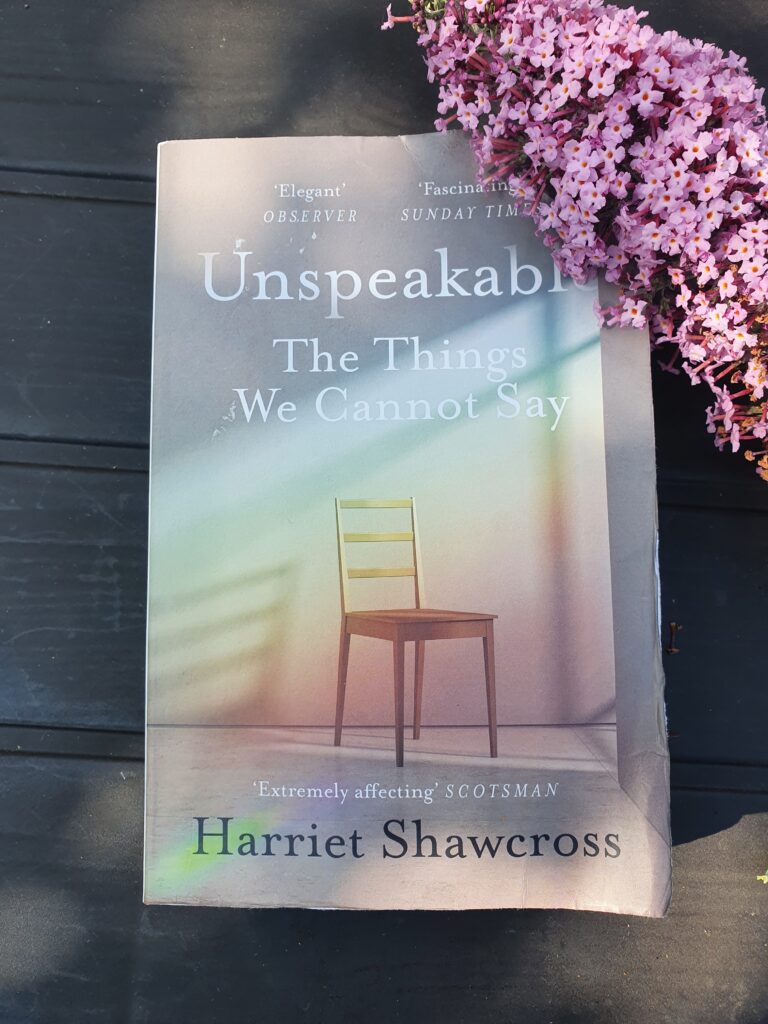
As a therapist I believe in the healing power of talking. But for some people, speaking about how they feel is an almost impossible task. They withdraw into a world of their own, and silence becomes their sanctuary. Harriet Shawcross’s book, Unspeakable The Things we Cannot Say, takes a look at the limits of language and the places where words fail.
A personal account of the power of silence
The author’s reliance on silence began during her school days when she developed selective mutism. Seemingly in response to her father’s redundancy. Although the redundancy was run-of-the-mill, her family’s response was not. They kept it secret and shrouded it in shame and silence. From here the author’s selective mutism took root, as did her keen interest in the subject of silence.
Despite the personal angle to this book, its content is incredibly wide ranging. Part memoir, part mental health study and part cultural commentary. Harriet really has been to the corners of the earth in her search for the meanings of silence. From experiencing a silent retreat in Scotland to interviewing the traumatised, yet stoic, survivors of the Nepalese Earthquake. This is a thorough account of silence in all its forms.
Who is this book for?
Although this book sounds niche and somewhat serious, the writing style of Unspeakable The Things We Cannot Say is actually very accessible. It’s especially good for counsellors and those in the mental health profession. There are chapters on the work of Samaritans, somatic experiencing and the cultural limitations of counselling in the west. There’s a particularly pertinent section on the dangers of assuming a western style of counselling is required in other countries. Shawcross writes, “The idea of sitting alone in a darkened room was incomprehensible to the Rwandans; to recover you needed to be outside in bright sunshine and with the community. The idea of being separated from others and forced to talk about what had happened to you, alone in a dingy little room, was believed to be profoundly damaging. “

But really this book is good for anyone who’s interested in the human condition. Whether a counsellor or not. If you’ve ever suffered trauma or bereavement, then you will know that sometimes words are completely inept. Equally, if you’ve ever cringed at the thought of making conversation with a room full of strangers at a networking event (or hid in the toilets) then you can probably empathise with selective mutism. Because if there’s one thing that comes across in Unspeakable The Things We Cannot Say it’s the author’s kindness, compassion and non nonjudgmental attitude to those who have sought safety in silence. It’s not a case of us and them, but a recognition that language could fail any one of us at any time.
If you’re happy to share your personal experiences around silence, in all it’s forms, and what it means to you then I would love to hear.
